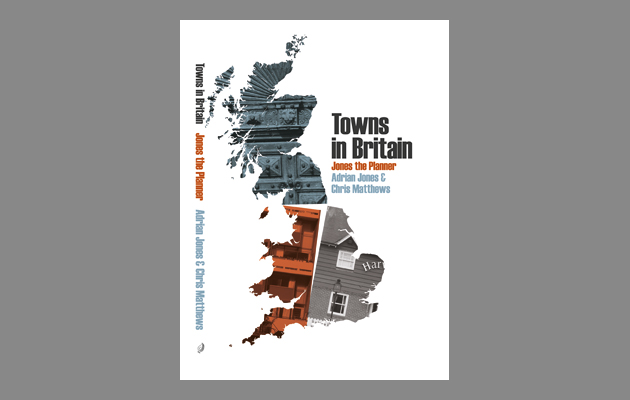|
|
||
|
An account of Britain’s cities castigates recent “regeneration” efforts, but isn’t ready to give up on the transformative potential of planning, says Sukhdev Sandhu Jones the Planner. It’s a name straight out of an Ealing film. Think Alec Guinness, hatted and officious, marching into a chirpy Cockney neighbourhood to tell the locals that change is afoot, their precious domains about to be demolished, and that they’d better like it. Jones the Planner is also the name of a popular blog that’s been running since 2011: written by designer/planner Adrian Jones and historian/graphic designer Chris Matthews, it records their yomps across Britain (and occasionally further afield to the likes of Copenhagen, Berlin and Naples) examining sometimes inventive, sometimes tragic, but often feeble examples of urban planning. The book of the blog is a handsome, generously illustrated and peppy defence of planning that emerges at a time when many architects and theorists, channelling the learning-from-Lagos speculations of Rem Koolhaas, like to talk up cities that are improvised, deregulated, spontaneous. “Planning of our cities is now more marginalized than at any time since the mid Victorian era,” they wryly note. Reflecting on the idealism of the post-war settlement, they’re eager to recall how planning could be a tool of righteous social engineering, an “emphatic reaffirmation of the values of equality, rationality and progress, and a direct response to the injustices and inequalities of the thirties depression”. They also accept that the complex negotiations and balancing of competing interests means that “planning lacks the clear focus, clarity of objectives and self-confidence of other professions”. As Jones and Matthews trek across the United Kingdom they witness no shortage of self-confidence. Unfortunately it often leads to terrible developments. Southampton inspires them to cry out: “Local government, and planning in particular, is drowning in bollocks visions: part of Blair’s damaging legacy of public service ‘reform’ – you had to have a vision to tick the performance assessment boxes.” At the end of a withering denunciation of Cardiff’s efforts to rebrand itself, not least with the “big idea” of an enterprise zone around Central Station, they declare that the city “needs less braggadocio and more finesse, more control, calm and confidence. It’s not all about testosterone.” It’s those towns and cities that have had the fewest “regeneration” schemes – among them Clifton, Lincoln and Swansea – that emerge best. Coventry is an “underrated masterpiece”. Perhaps surprisingly, London is praised for its “humane social policy and good planning”, which the authors put down to it having “power of control and government funding for transport that the rest of us can only dream about”. Glasgow’s School of Art is applauded: praise that’s understandable and chastening in the wake of the huge fire there this May. In general, student hostels emerge as a growing blight on the British landscape. Jones and Matthews give props to architectural commentators such as Ian Nairn, Jonathan Meades and Owen Hatherley. Their own writing isn’t as politically trenchant as that of Hatherley or as brawnily, brainily stylistic as Meades. At times they use a plain-speaking style – developments are described as “bonkers”, “bog-standard”, “boring” – that not only recalls the Crap Towns micro-phenomenon they say they despise, but teeters on Jeremy Clarkson terrain. Using “hipster” as a form of abuse is, ahem, very passé. Neoliberalism and specific Tory ministers such as Nicholas Ridley and Eric Pickles are identified as key contributors to “the dreadful quality of most new housing estates, the failure to deliver the social housing that is so desperately needed, the silly icons, the shiny gated communities, the decline of the high street, the cheap banality of waterside regeneration”. Earlier though, Jones and Matthews claimed that “the great English industrial cities grew out of the squalor and chaos of unregulated capitalism and the wealth and opportunities generated”. It’s a paradox I hope they’ll explore in future books. |
Words Sukhdev Sandhu
Towns in Britain: Jones the Planner |
|
|
||

















